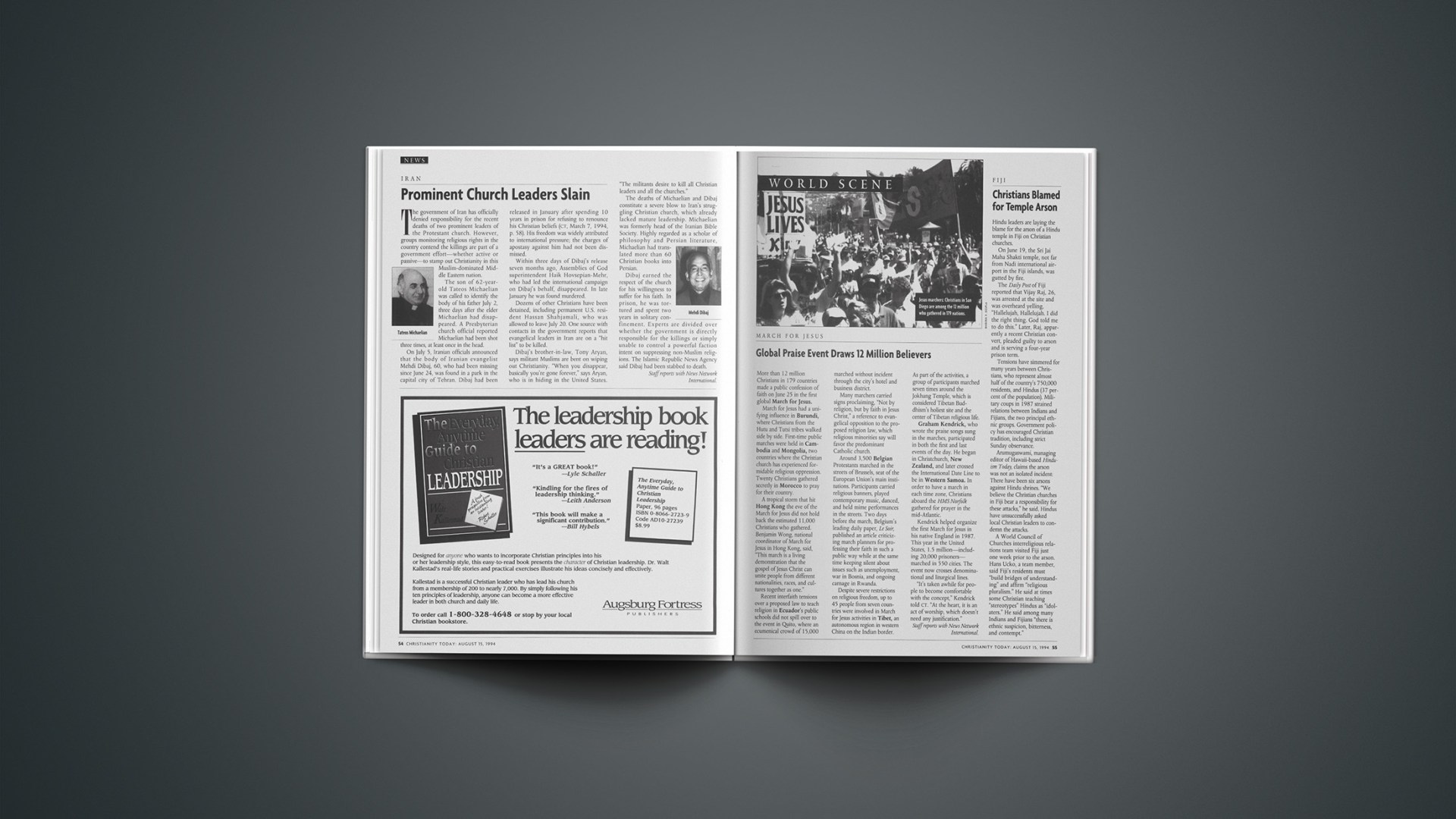The government of Iran has officially denied responsibility for the recent deaths of two prominent leaders of the Protestant church. However, groups monitoring religious rights in the country contend the killings are part of a government effort—whether active or passive—to stamp out Christianity in this Muslim-dominated Middle Eastern nation.
The son of 62-year-old Tateos Michaelian was called to identify the body of his father July 2, three days after the elder Michaelian had disappeared. A Presbyterian church official reported Michaelian had been shot three times, at least once in the head.
On July 5, Iranian officials announced that the body of Iranian evangelist Mehdi Dibaj, 60, who had been missing since June 24, was found in a park in the capital city of Tehran. Dibaj had been released in January after spending 10 years in prison for refusing to renounce his Christian beliefs (CT, March 7, 1994, p. 58). His freedom was widely attributed to international pressure; the charges of apostasy against him had not been dismissed.
Within three days of Dibaj’s release seven months ago, Assemblies of God superintendent Haik Hovsepian-Mehr, who had led the international campaign on Dibaj’s behalf, disappeared. In late January he was found murdered.
Dozens of other Christians have been detained, including permanent U.S. resident Hassan Shahjamali, who was allowed to leave July 20. One source with contacts in the government reports that evangelical leaders in Iran are on a “hit list” to be killed.
Dibaj’s brother-in-law, Tony Aryan, says militant Muslims are bent on wiping out Christianity. “When you disappear, basically you’re gone forever,” says Aryan, who is in hiding in the United States. “The militants desire to kill all Christian leaders and all the churches.”
The deaths of Michaelian and Dibaj constitute a severe blow to Iran’s struggling Christian church, which already lacked mature leadership. Michaelian was formerly head of the Iranian Bible Society. Highly regarded as a scholar of philosophy and Persian literature, Michaelian had translated more than 60 Christian books into Persian.
Dibaj earned the respect of the church for his willingness to suffer for his faith. In prison, he was tortured and spent two years in solitary confinement. Experts are divided over whether the government is directly responsible for the killings or simply unable to control a powerful faction intent on suppressing non-Muslim religions. The Islamic Republic News Agency said Dibaj had been stabbed to death.
Copyright © 1994 Christianity Today. Click for reprint information.
ctjul94mrw4T80045616









